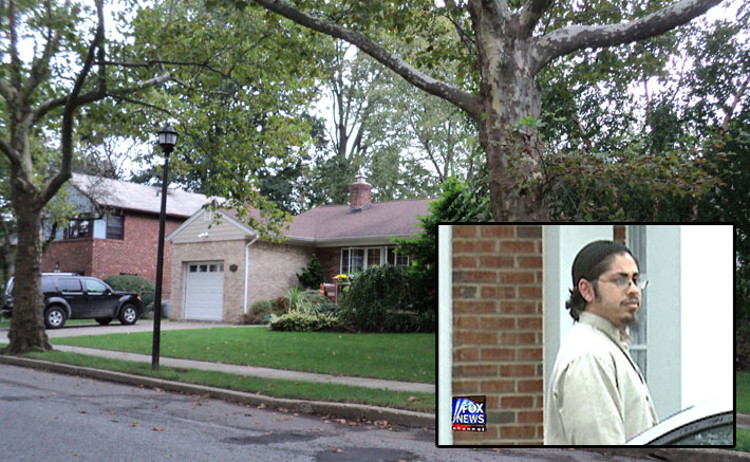The Obama Administration says it will release a legal memo justifying the killings of U.S. citizens allegedly associated with terrorism, but it remains unclear if the memo will provide justification for the drone strike in Yemen that took out Samir Khan, a purported al-Qaeda propagandist who spent his teenage years in Westbury.
The Obama Administration, which has come under intense scrutiny for extrajudicial killings beyond the borders of declared war zones, was under court order to release a redacted version of the legal memo but apparently chose to forgo an appeal in order to assuage a group of U.S. Senators hesitant to confirm Obama’s pick to sit on the first U.S. Circuit Court of Appeals in Boston, David Barron, until the memo was released.
Barron, a former Harvard professor and Justice Department official, authored the legal opinion that triggered the September and October 2011 drone strikes in Yemen that killed three U.S. citizens, including Khan. He is likely to be confirmed before the memo is released. The redacted version requires court approval, meaning it could take some time before it becomes publicly available.
The U.S. Court of Appeals for the Second Circuit ordered the memo’s release in response to separate Freedom of Information Act suits filed by two reporters for The New York Times and the American Civil Liberties Union (ACLU), which were later combined.
“The release of this memo will allow the public to better understand the scope of the authority that the government is claiming,” ACLU Deputy Legal Director Jameel Jaffer said on the organization’s website. “We will continue to argue in court for the public release of the other targeted killing memos and related documents.”
The ACLU’s FOIA suit is just one of several related to America’s drone wars.
In April, U.S. District Judge in Washington D.C., Rosemary Collyer, dismissed a lawsuit filed on behalf of the three dead U.S. citizens—Khan, Anwar Al-Awlaki, an alleged leader of al Qaeda in the Arabian Peninsula, and his 16-year-old son, Abdulrahman—that sought to hold liable several high-ranking government officials. Al-Awlaki and Kahn’s parents were seeking unspecified monetary damages.
While acknowledging that the question of holding government officials personally responsible “raises fundamental issues regarding constitutional principles, and it’s not easy to answer,” Collyer ruled that the drone strike did not violate their right to unreasonable seizures.
In her 41-page decision, Collyer ruled against the Fourth Amendment claim, noting bluntly that the function of unmanned drones is not to physically capture a person but “they are designed to kill.”
Both suits focused on the Sept. 30, 2011 drone strike that killed Al-Awlaki and Khan as they were traveling in a vehicle together in the Yemeni province of al-Jawf.
Al-Awlaki, born in New Mexico in 1971, had three children while living in the U.S. He uprooted his family around 2002 and moved to Yemen.
Nearly a decade later, Al-Awlaki allegedly ascended to a leadership position within al Qaeda in the Arabian Peninsula and conspired with Umar Farouk Abdulmutallab to blow up a Detroit-bound airliner on Christmas Day 2009 that was carrying 289 passengers, according to court documents.
U.S. Attorney General Eric Holder, in a now-declassified May 22, 2013 letter to Congress, acknowledged specifically targeting Al-Awlaki in a drone strike two years earlier. Khan, however, was not a target, and was considered a “bystander.” It’s not known if the U.S. government was aware that Khan was with Al-Awlaki before they launched the drone strike.
While the legal justification and factual bases for slaying Al-Awlaki will eventually come to light, it’s unclear if any such justification exists regarding Khan and Abdulrahman, who was killed two weeks later in a drone strike intended for an Egyptian national who survived the attack.
“Allegations are not proof, and if the Constitution means anything, it requires protections for everybody, and it requires the government to follow the constitutional rules regardless of what it believes, and allegations cannot be enough,” Brett Max Kaufman, a national security fellow and attorney for the ACLU, told the Press in a phone interview. “And that’s especially true in highly charged circumstances of national security because the Constitution requires more than simply the government claiming that it’s acting for national security reasons.”
In 2002, Khan became a U.S. citizen and grew up in Westbury. He graduated from W.T. Clarke High School in 2003. He ended up moving to North Carolina, where he attended community college. Then, Khan got up and left again, this time to Yemen.
Khan, who wrote for his high school newspaper, has since been identified as the editor of Inspire, an al-Qaeda magazine that features articles on bomb building and other terrorism-related topics. One of the articles he reportedly wrote was titled: “I am proud to be a traitor to America.”
After Khan’s death, his family released a statement to the Charlotte Observer condemning the drone attack.
“We feel appalled by the indifference shown to us by our government,” it read. “No U.S. official has contacted us with any news about the recovery of our son’s remains, nor offered us any condolences.”
Khan’s parents declined to be interviewed for this story.
Only recently has the Obama Administration publicly confirmed conducting fatal drone strikes in Pakistan and Yemen.
One day after Holder sent his letter to Congress disclosing for the first time America’s role in killing Al-Awlaki after the attorney general had concluded that he “posed a continuing and imminent threat of violent attack against the United States,” Obama gave his speech at the National Defense University in Washington D.C. defending the strikes as legal.
“Beyond the Afghan theater, we only target al Qaeda and its associated forces,” Obama said. “And even then, the use of drones is heavily constrained. America does not take strikes when we have the ability to capture individual terrorists; our preference is always to detain, interrogate and prosecute.”
“America,” he added, “cannot take strikes wherever we choose; our actions are bound by consultations with partners, and respect for state sovereignty.”
Human right activists and civil libertarians have been critical of the government’s covert drone strikes, which they say have resulted in the deaths of scores of civilians. Other groups are also doing what they can to raise awareness.
In April, an artist collective created a giant portrait of a young Pakistani girl who reportedly lost her parents and two siblings in a U.S. drone strike and displayed it on a field in the Khyber Pukhtoonkhwa region of Pakistan.
“Now, when viewed by a drone camera, what an operator sees on his screen is not an anonymous dot on the landscape, but an innocent child victim’s face,” the collective said on its website, Not A Bug Splat.
Kaufman, the ACLU attorney, believes that if nothing else, their recently dismissed lawsuit helped bring to light a form of warfare that remains shrouded in secrecy.
“The case does present this conflict between the rights of individuals and the power of the government over them in a really stark way, and it does draw attention to this killing program which has been ongoing, affecting non-citizens in a much greater way than even citizens,” he said. “But by bringing the case we have been able to have the issue in the public eye and raise some important constitutional questions about the government’s program.”































